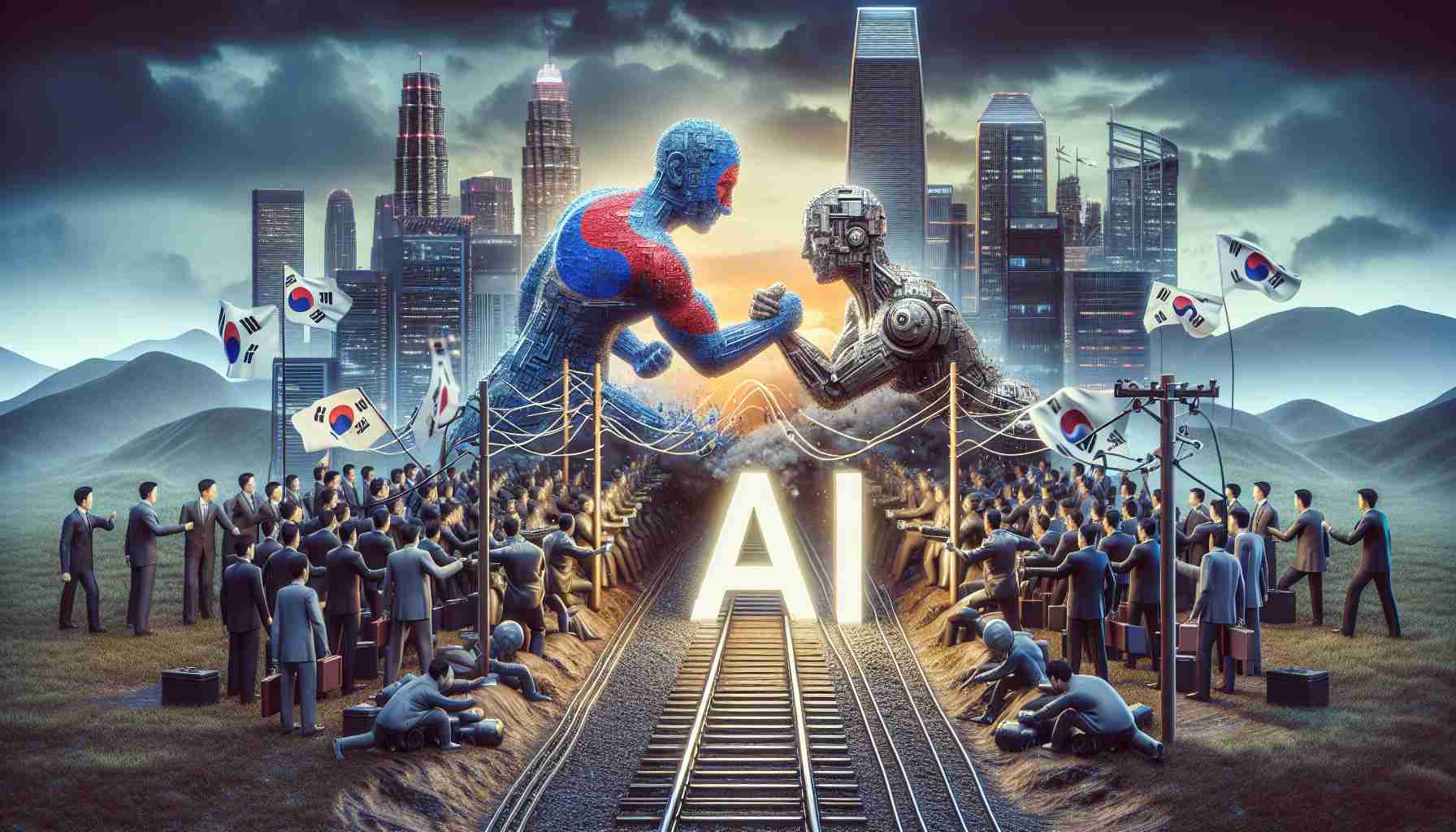- The Democratic Party advocates for increased government budget allocations to bolster AI development as a means to enhance economic growth.
- The opposition, People Power Party, calls for bipartisan collaboration instead of focusing solely on budget shifts.
- Political tensions are high, with both parties exchanging criticisms regarding their approaches to AI investments.
- Experts warn that failure to act quickly could result in South Korea falling behind in the global AI race.
- The outcome of these political debates will significantly affect the country’s technological advancement and economic future.
On February 1, 2025, South Korea’s political arena ignited with fierce debates over the future of artificial intelligence (AI). The ruling Democratic Party urged the government to shift its budget significantly towards AI development, advocating that such investments are key to revitalizing economic growth. The party’s leader passionately argued for governmental support to ensure South Korea doesn’t fall behind on the global stage.
However, the opposition, the People Power Party, has resisted these calls, claiming that the focus should not solely be on budget allocation but also on fostering bipartisan collaboration. Tensions escalated when spokespersons from both parties exchanged pointed criticisms. One Democratic Party member provocatively asked if the opposition had lost touch with reality, emphasizing the urgency of prioritizing innovation over political squabbles.
As nations around the globe ramp up their AI investments, South Korea faces an immediate challenge. The opposition’s reluctance to cooperate could jeopardize the country’s position in a fiercely competitive landscape. With economic analysts warning of potential losses in opportunity and innovation, the message is clear: South Korea needs swift, unified action to keep pace.
The ongoing showdown illustrates a crucial moment in the nation’s political and technological journey. Will the Democratic Party’s push for an AI-focused budget win out, or will the People Power Party’s insistence on broader discussions prevail? As these debates unfold, the nation’s technological future hangs in the balance, highlighting the imperative for political unity and a shared vision for innovation. The choice made today will shape South Korea’s AI landscape for years to come.
AI Showdown: South Korea’s Political Tug-of-War for Innovation
The State of AI Investment in South Korea
As of 2025, South Korean politics surrounding artificial intelligence (AI) have reached a fever pitch, with considerable implications for the nation’s economic future and technological trajectory. The ruling Democratic Party is advocating for substantial budget reallocations towards AI innovation, while their opposition, the People Power Party, is calling for a more collaborative approach that emphasizes bipartisan efforts beyond mere financial concerns. This situation highlights not only political divides but also the strategic importance of AI in sustaining economic competitiveness.
Key Features of South Korea’s AI Strategy
– Budget Allocation: The Democratic Party proposes a significant increase in AI development funds, targeting areas like machine learning, robotics, and data analytics.
– Collaboration Initiatives: The People Power Party presses for legislative frameworks that encourage interdisciplinary partnerships among tech firms, academia, and government.
– Global Competitiveness: Experts warn that failure to unify behind a coherent AI strategy could diminish South Korea’s standing in the global tech landscape.
Current Trends in AI Worldwide
Globally, countries are increasingly recognizing AI as a cornerstone of future growth. Nations like the United States and China are leading with massive investments in research, workforce training, and infrastructure. In this competitive environment, South Korea’s internal strife may hinder timely development and implementation of cutting-edge AI technologies.
Pros and Cons of the Current Debate
Pros:
– Economic Growth: Increased investment in AI can lead to job creation and technological advances.
– Innovation Hub: Focusing funding on AI can position South Korea as a leader in future tech markets.
Cons:
– Political Polarization: Ongoing partisan conflicts may delay important initiatives.
– Resource Allocation Disputes: Disagreements over budget priorities could detract from broader tech initiatives.
Market Forecast: The Future of AI in South Korea
The AI sector is poised for substantial growth, with estimates suggesting the market could expand by over 25% annually through 2030, contingent on strategic government support and adequate funding. Analysts predict that strong investment now will create a robust ecosystem that attracts global talent and capital.
Related Insights
1. Security Aspects of AI: As AI technologies evolve, so do concerns regarding cybersecurity. Stakeholders must prioritize robust security protocols to mitigate risks associated with AI deployment.
2. Sustainability in AI Development: There is a pressing need for environmental considerations in AI strategies. Sustainable AI practices can reduce energy consumption and carbon footprints.
3. Compatibility Issues: Varying levels of technological advancement across sectors in South Korea may create compatibility challenges, necessitating standardized protocols and integration strategies.
Frequently Asked Questions
1. How does South Korea’s AI investment compare to other countries?
South Korea’s investment in AI is substantial, but it lags behind the United States and China regarding total funding and resource allocation. To compete effectively, South Korea must revise its strategies and enhance collaboration across the political spectrum.
2. What are the potential economic impacts of AI investment?
Economic impacts could include job creation in tech sectors, increased productivity across various industries, and a potential rise in GDP linked to successful AI applications. However, failure to act decisively could result in lost economic opportunities.
3. What challenges does South Korea face in unifying its AI strategy?
Political polarization is the primary hurdle. Disagreements over budget priorities and methods of collaboration threaten to undermine cohesive action, slowing progress in AI development.
For further insights into the evolving landscape of AI and political strategies, visit South Korea Government for up-to-date information and resources.
